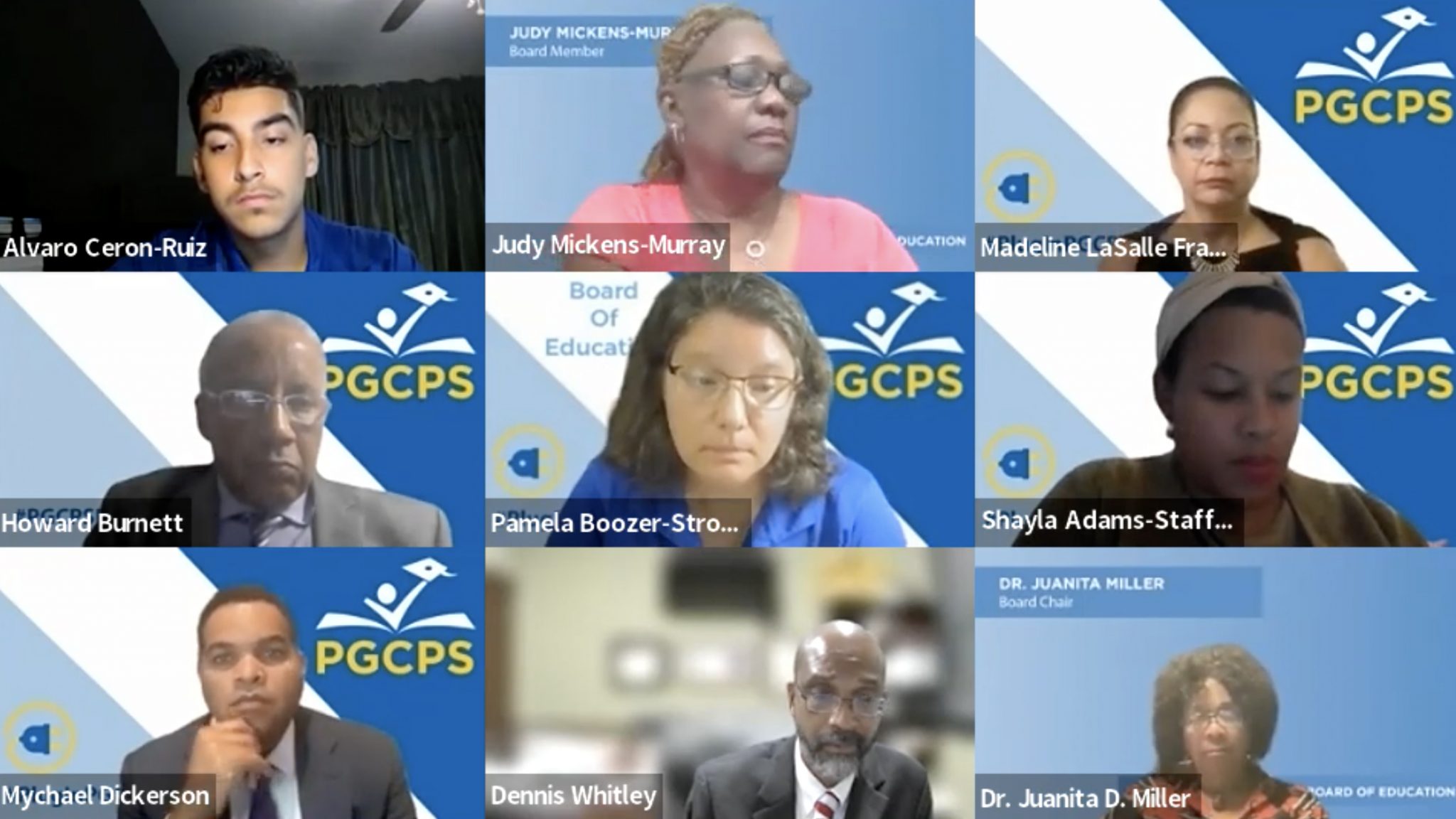Views expressed in opinion columns are the author’s own.
It’s clearer than ever before that the climate crisis is an existential threat — and not just a distant, intangible one, but one that affects us acutely in Maryland. And we must confront it with every resource we have. That means our leaders shouldn’t just set ambitious goals, but should go even further and harness the public sector to lead the fight.
In educating young people, public schools require extensive and wide-ranging supporting infrastructure. We can therefore transform schools and everything associated with them into apparatuses for combating climate change.
That’s exactly what Prince George’s County Public Schools has the opportunity to do Thursday. The Prince George’s County Board of Education will be voting on a new sustainability policy submitted by its policy and governance committee.
The board should approve it — and PGCPS CEO Monica Goldson ought to expediently begin directing its implementation.
The sustainability policy would catalyze implementation of many of the goals set forth in the PGCPS’ climate action plan, drafted in 2021 by a group of students, parents, teachers and administrators.
Some of the transformative proposals adopted from the plan include conducting energy audits of every school system building, reducing food waste, replacing buses with zero emission vehicles and working toward net zero emissions schools.
Transitioning to zero emission vehicles and net zero emissions buildings are some of the most obvious techniques for combating the impacts of climate change through dramatically reducing carbon dioxide contributions into the atmosphere. But the utility of other proposals shouldn’t be understated either.
Energy audits create a lucid pathway for action that is so often muddied. Without a better understanding of how energy is actually consumed, we can’t determine which avenues should be targeted for reduction.
Minimizing food waste is another urgent endeavor. A 2021 U.S. Environmental Protection Agency report estimated the equivalent emissions of annual food loss and waste in the U.S. is comparable to carbon dioxide emissions of 42 coal-fired power plants.
The new plan further takes into account advancing healthy indoor air quality, the benefit of which extends beyond addressing climate impacts. As COVID-19 cases continue to persist, despite widespread institutional resignation to hundreds of American deaths daily, experts have continued to push for improving indoor air quality as a means of reducing transmission.
Plans for addressing climate change at the K-12 level can also serve as compelling models for addressing climate change from a university perspective. Both public schools across Prince George’s County and this university share similar challenges in the process of addressing climate change, as a result of common environmental factors in such close proximity.
From replacing Shuttle-UM buses with zero emission vehicles, to reducing food waste generated at the end of the night by our dining halls, this university can make the most of the school system’s efforts in our own ones as we seek to meet one of our own ambitious climate goals: a net zero campus by 2025.
As we consider the side benefits of the proposed sustainability policy, let’s keep in mind that attaining more sustainable schools and educating young minds aren’t mutually exclusive or conflicting goals. Instead, they go hand-in-hand. More sustainable school infrastructure helps foster students’ long-term health. These benefits even translate into elevating students’ academic achievement.
Moreover, it presents a novel approach for educating students about the impacts of climate change and the significance of mitigation measures. As instructors explore new ways to integrate the climate crisis into curricula, students conceptualizing the effects of climate change — and corresponding public policy responses — is an enormous asset.
Because drafting of the county’s climate action plan was in part student-led, approval of the sustainability policy would also be a testament to the value of student activism. The county’s education board must affirm the considerable attention its own students brought to the climate crisis. A student at Oxon Hill High School well summarized the fears of many young people in testimony to the board, remarking, “I’m unsure what my future will look like.”
On Thursday, the education board can bring some certainty by voting in favor of the proposed sustainability policy. Every child deserves to know, at the very least, that they have a future on this planet.
Dhruvak Mirani is a freshman computer science and government and politics major. Mirani can be reached at contact@dhruvak.com.



